Sean Durkin | 2hr 12min

The family curse that is rumoured to have haunted the Von Erich wrestling empire hangs heavy over The Iron Claw. It is said that when patriarch Fritz Von Erich changed his surname from Adkisson to his mother’s maiden name, he brought misfortune upon all those who carried it on, including his eldest son Jack Jr who passed away in an accident at the young age of 5. One random tragedy on its own is simply bad luck, surviving brother Kevin believes, and has little to do with superstition. Still, the more disasters that pile up, the harder it is to deny the presence of some invisible force setting each child of the Von Erich family on a slow, agonising path to total ruin.
Beyond fate and luck, perhaps there is a third, far more rational reason behind the heartbreaking catastrophes hunting these brothers down though. Fritz’s ambitious drive to preserve his family legacy may very well be his own biggest threat, and only escalates in response to the damage it does. Surely Jack Jr’s freak death can’t be put down to this, and neither can the sudden onset of David’s enteritis, but the young wrestler’s decision to ignore physical pain in pursuit of greatness certainly aligns with his hard-headed father’s no-excuses credo. Although much of The Iron Claw is framed through the eyes of Kevin, it is Fritz who becomes the most compelling character in his selfish push for glory, openly playing favourites with his sons to breed competition and excellence.
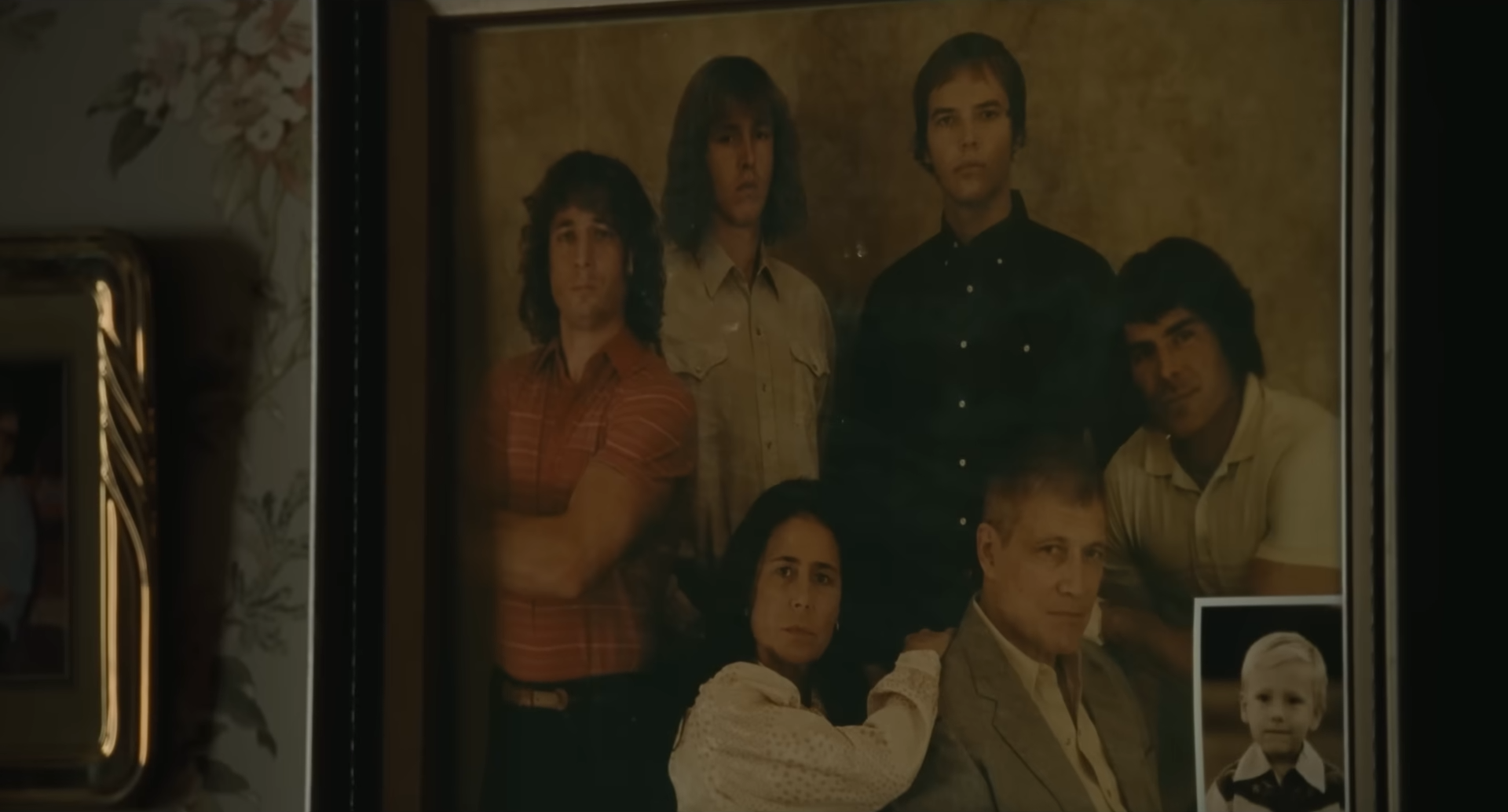
If anything, this Darwinian approach to parenting hurts his relationship with his children more than their bonds with each other. The devastation that is wreaked on their lives is made even more gut-wrenching by Sean Durkin’s portrayal of them as such close companions, never placing their personal ambitions over their family. Fritz may not bear a lot of fondness for Mike, the youngest and least interested in wrestling, but his own brothers don’t think twice about supporting his musical aspirations, and Kevin similarly never lets his friendly rivalry with David and Kerry wither into animosity. When illnesses, accidents, and suicides begin to pick them off, we can see the mental burden placed on Kevin as he anxiously accepts the possibility of a family curse, and yet Fritz can only seal his anguish tight behind a stoic denial of responsibility.
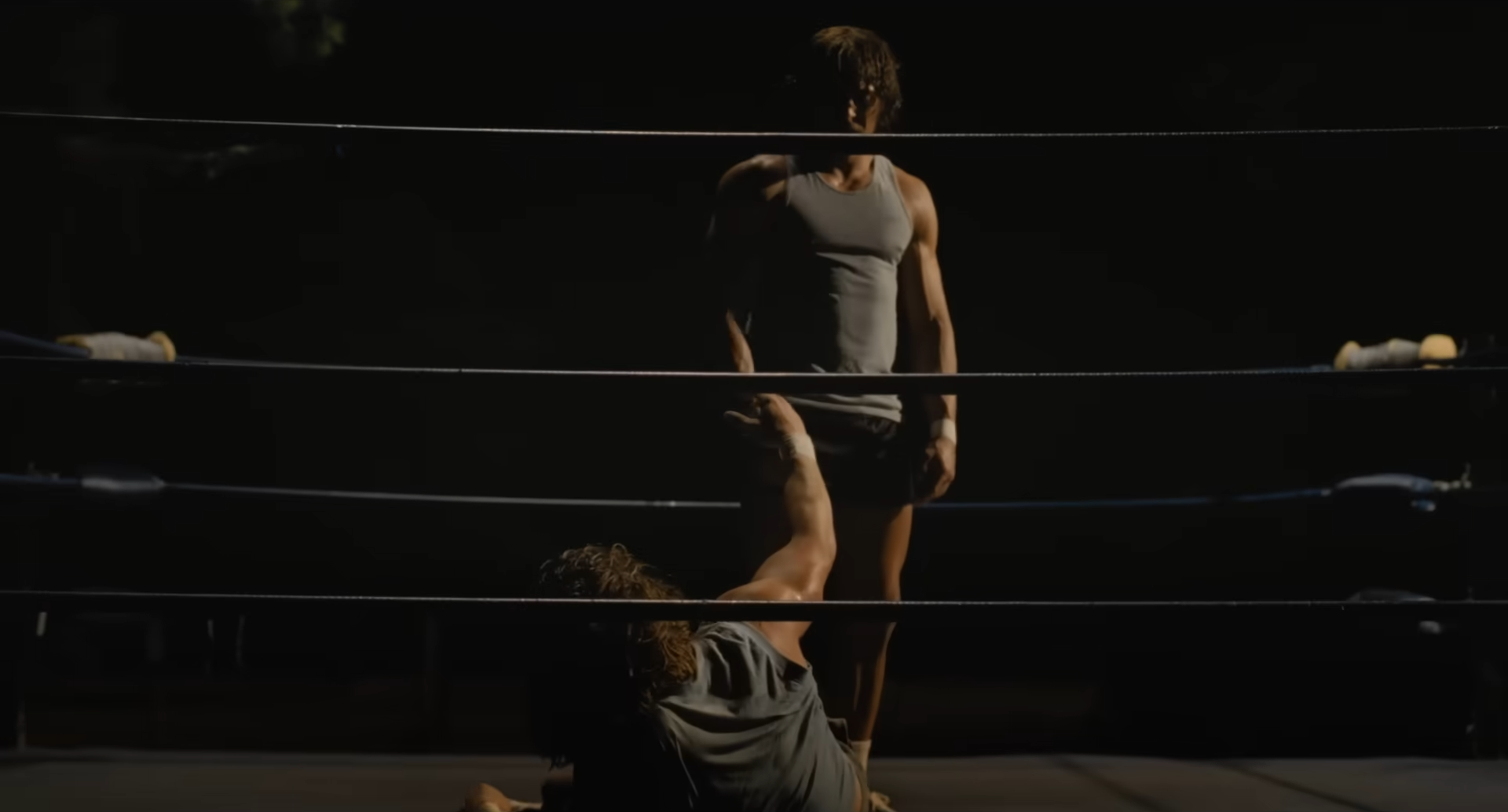
It is also at this point that Durkin begins to reveal the true nature of The Iron Claw – not as a conventional sports biopic about underdogs rising to the top, but a patient, psychological drama obsessed with the thin division between destiny and chance. Enormous weight is placed on a single coin flip that will determine whether Kevin or Kerry will take David’s place in a major fight, and that is all it takes to set off a new chain of events that sees Kerry lose his foot in a motorbike accident, Mike step up to represent the Von Erich empire, and subsequently suffer permanent brain damage. Perhaps with a more supportive father the misfortune might have ended there, and yet in Fritz’s mind the only way to move forward is to raise the bar even higher, setting the mental health of his sons on the same downward trajectory as their physical welfare.
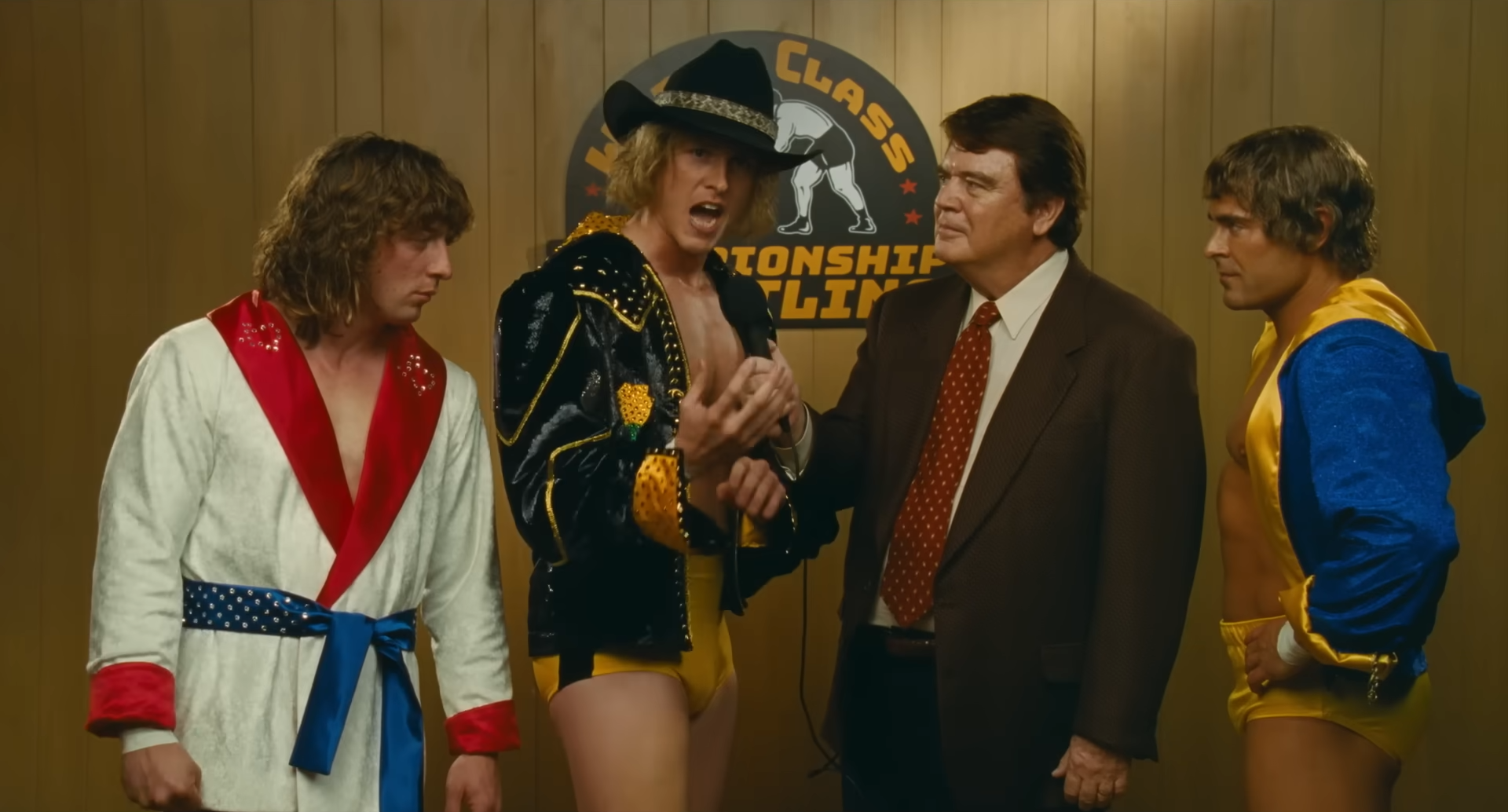
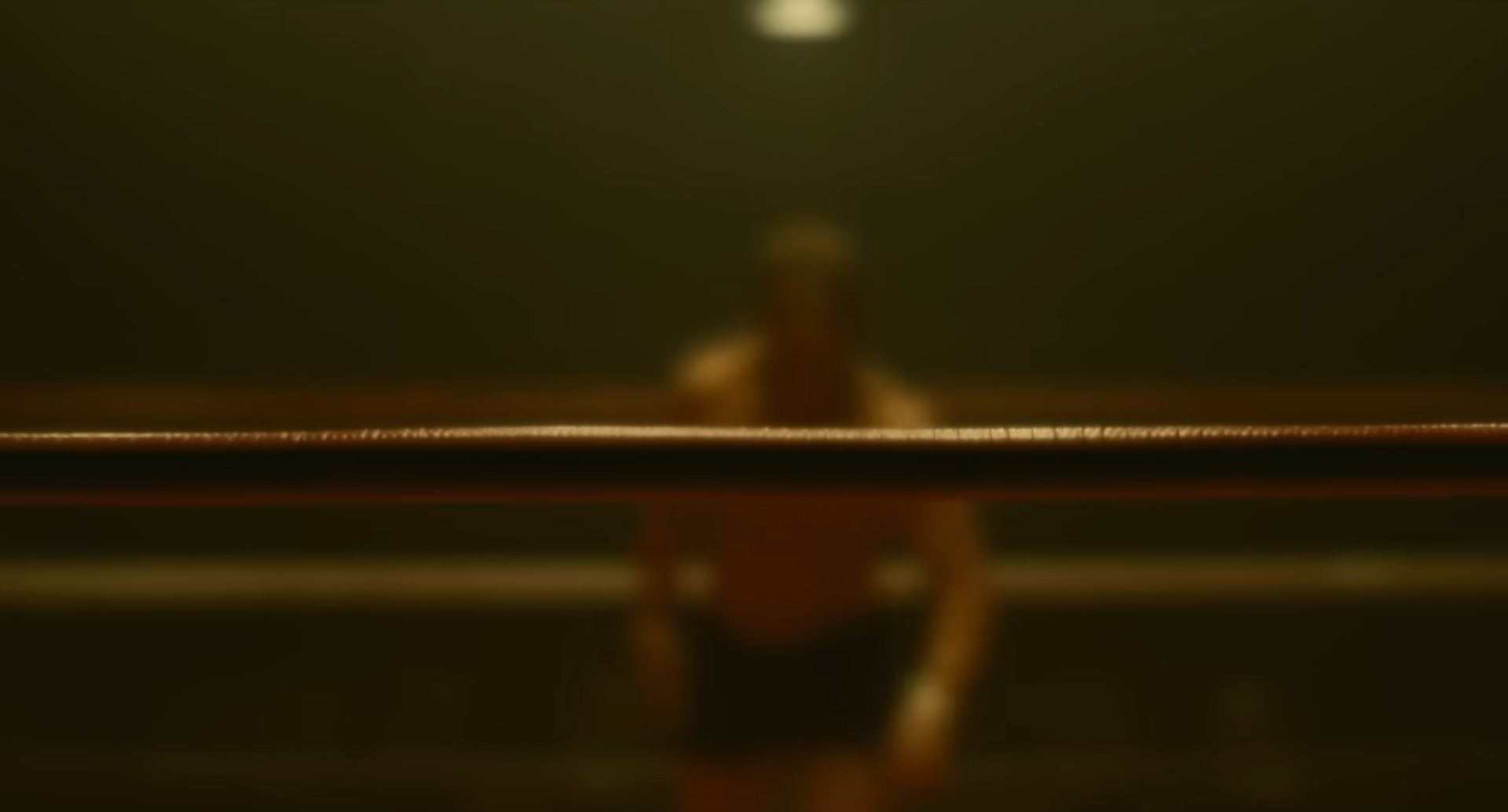
The visceral impact of Durkin’s editing and lighting heavily evoke Raging Bull in early boxing scenes, but his direction also submits to a subdued despair the deeper we get into The Iron Claw’s narrative, turning an introspective eye towards Kevin’s trauma. Durkin knows when to step back on the montages and hold on a shot, often pairing them with a slow zoom that draws our eye to both the foreground and background, and creating a subtle discomfort that jarringly runs against these wrestlers’ dynamic energy. Long dissolves become more common here too, creating an ethereal disorientation that formally matches supernatural visions of ghosts appearing just within the peripheral view of living characters, eerily out of focus.
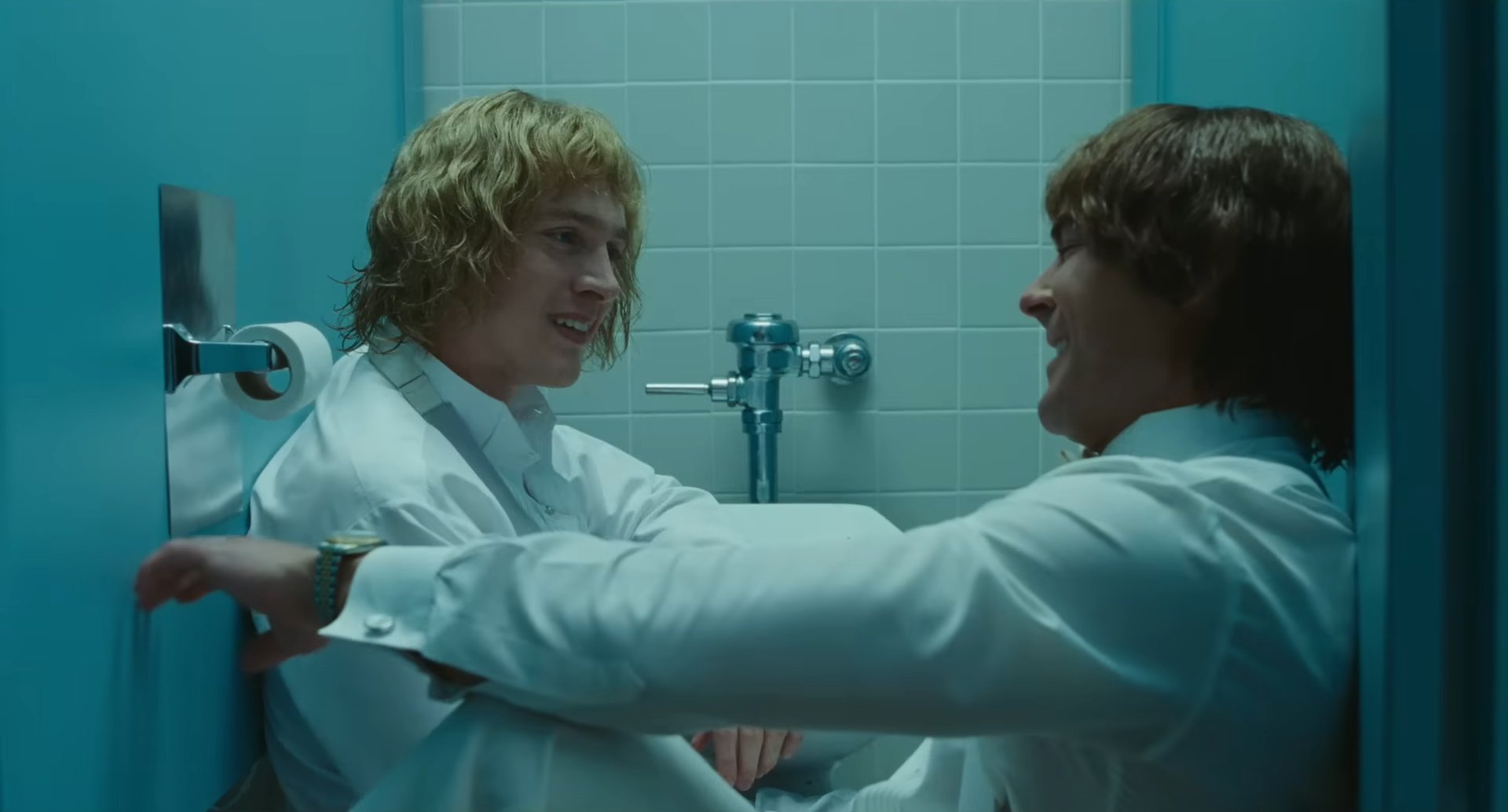
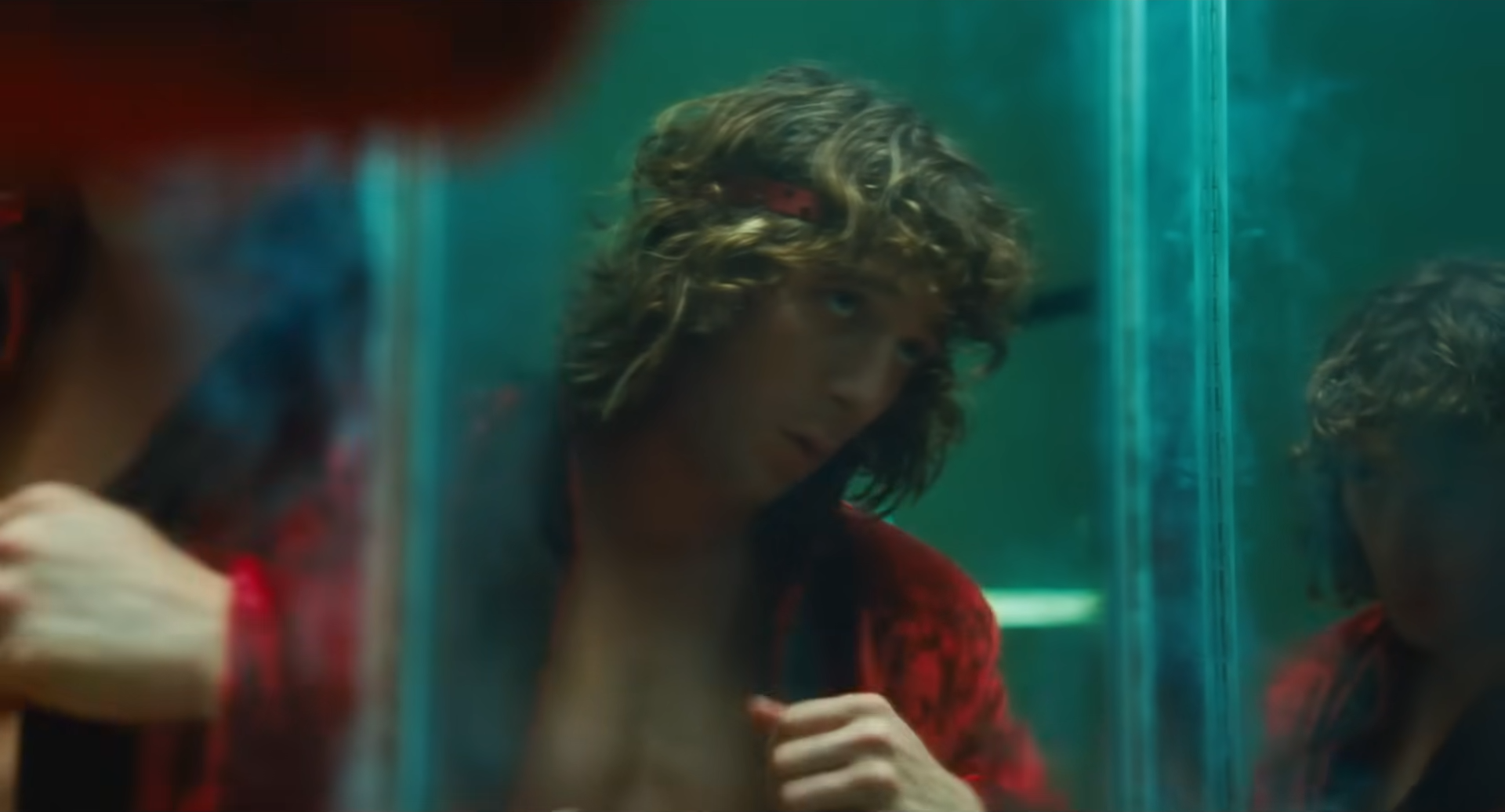
Zac Efron’s performance fits well into this uncanny atmosphere, simultaneously carrying an enormous, beefy physique and great emotional vulnerability. Directly proportional to the immensity of his adversity is the anger which he unleashes in the wrestling ring, uncontrollably mounting until he is disqualified for continuing to use the ‘Iron Claw’ on his opponent past the ringing of the bell. The irony that this was once Fritz’s signature move is not lost on Durkin. In trying to become their father, each of the Von Erich children sacrifice a little bit of their own sanity and wellbeing, falling to a psychological darkness that many of them never escape from.
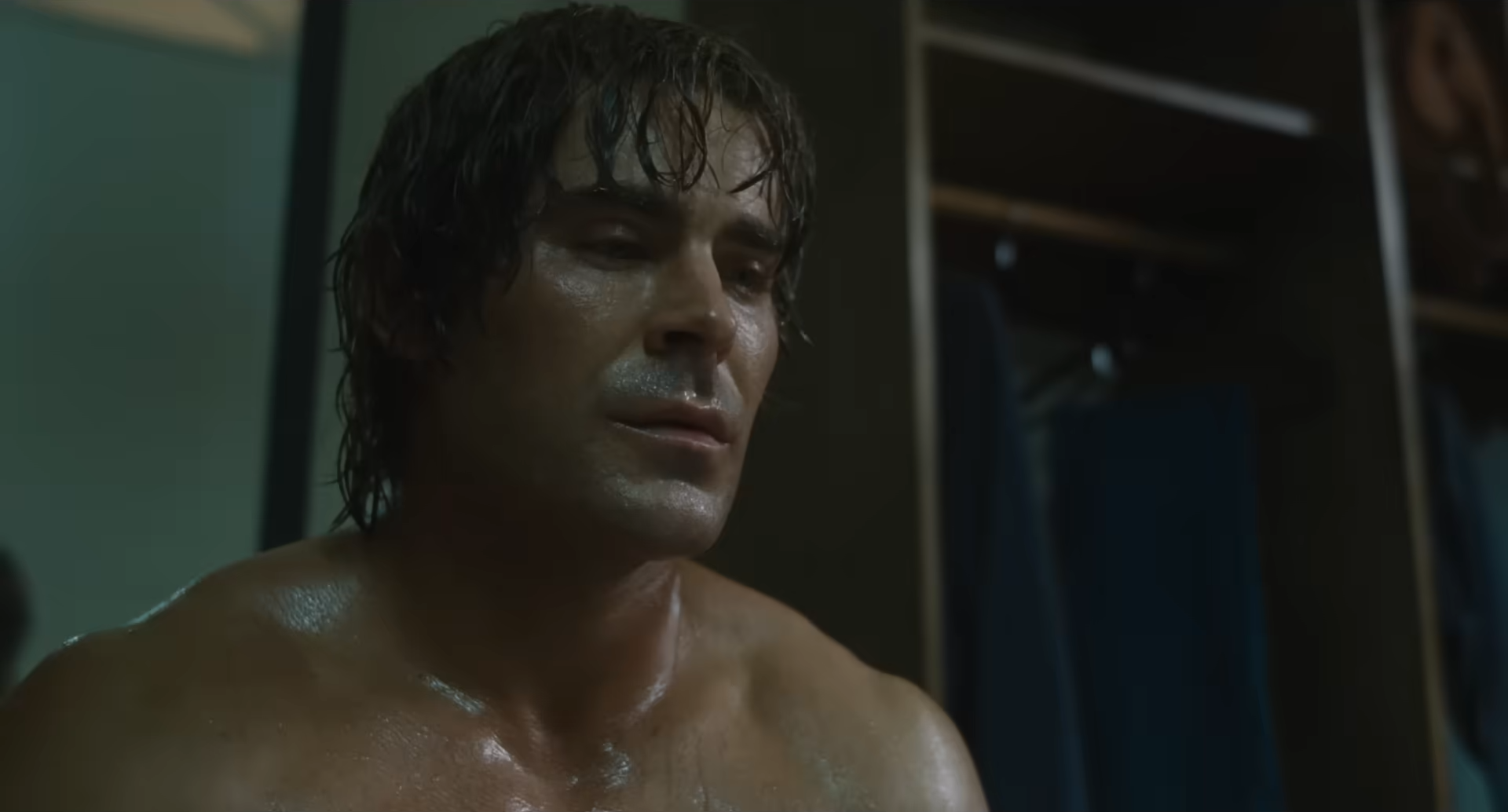
Though there is the faintest tinge of horror and suspense attached to Durkin’s direction, The Iron Claw would be better described as an extended tragedy underscored by persistent fear, only letting its overwhelming grief resolve into tearful reflection in the final act. “Tonight, I walk with my brothers,” are the last words of the last Von Erich suicide note, and Durkin brings a tender sensitivity to his visualisation of such a heavenly meeting. If this family curse is real, then perhaps it merely takes the form of poor parenting rather than some evil superstition, and yet the end results are virtually indistinguishable. It is the descendants of the damned who suffer most in either case, as the sins of the prideful, overbearing father prey on the only good thing to have spawned from his legacy – the unwavering kinship of brotherly love.
The Iron Claw is currently playing in theatres.
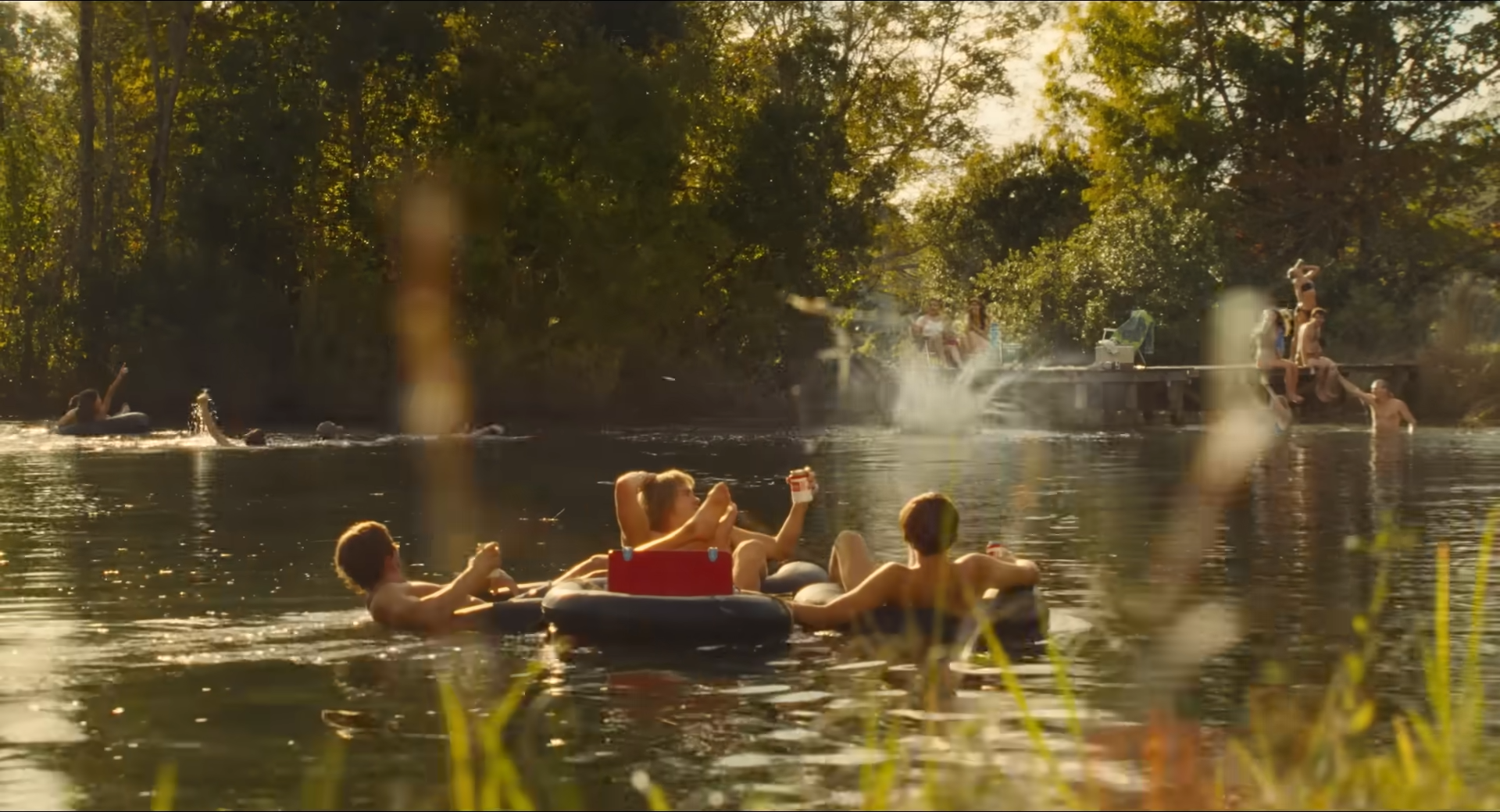

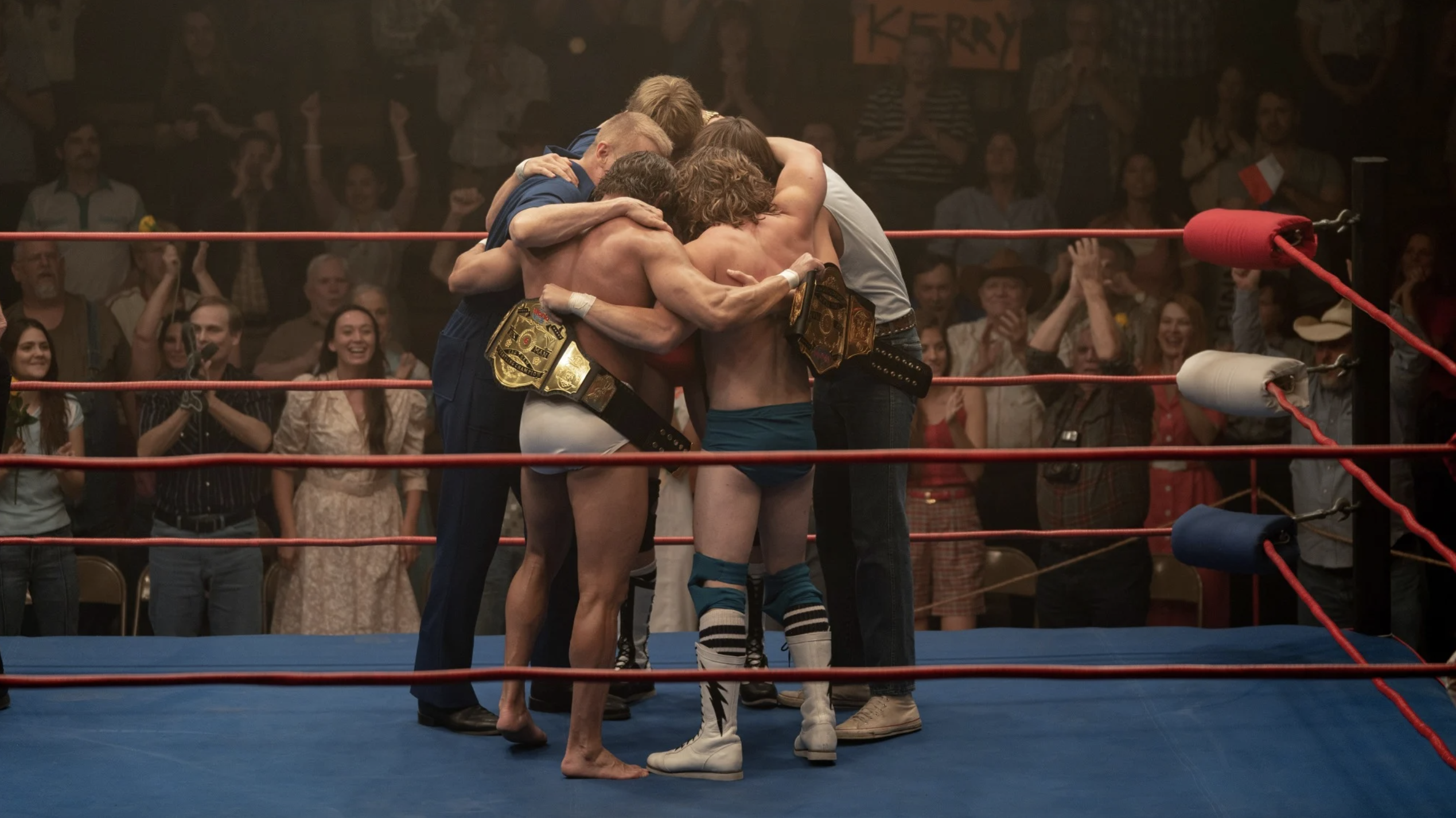
Pingback: 2024 Oscar Predictions and Snubs – Scene by Green